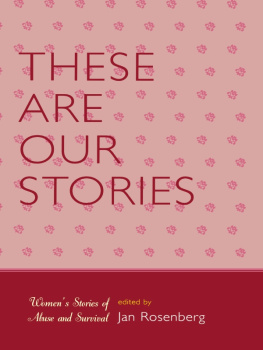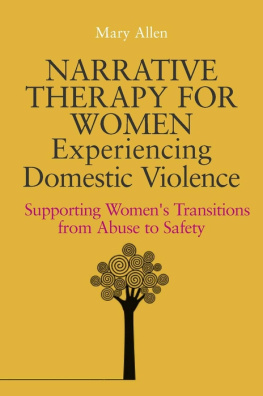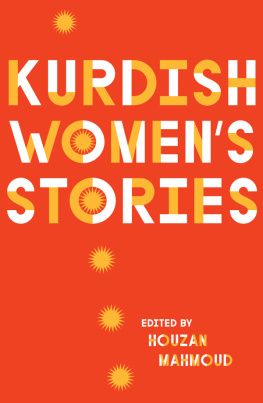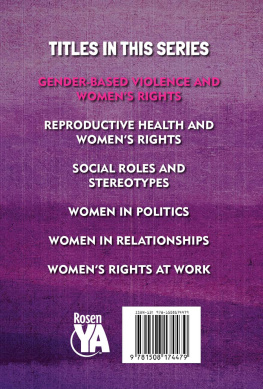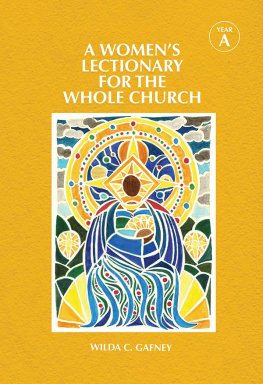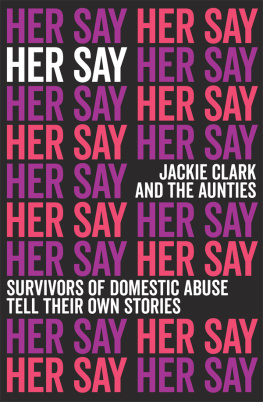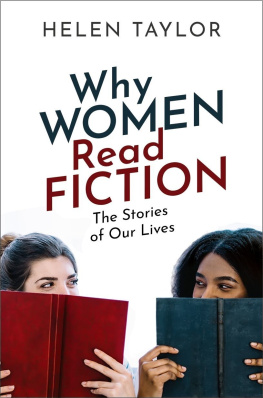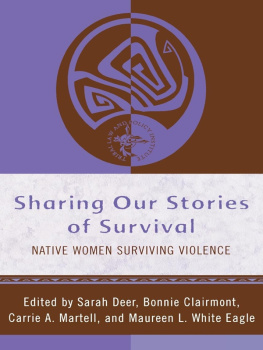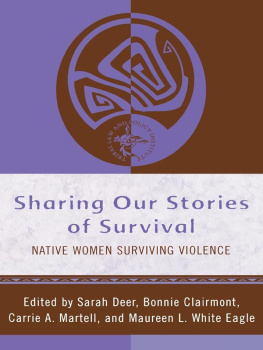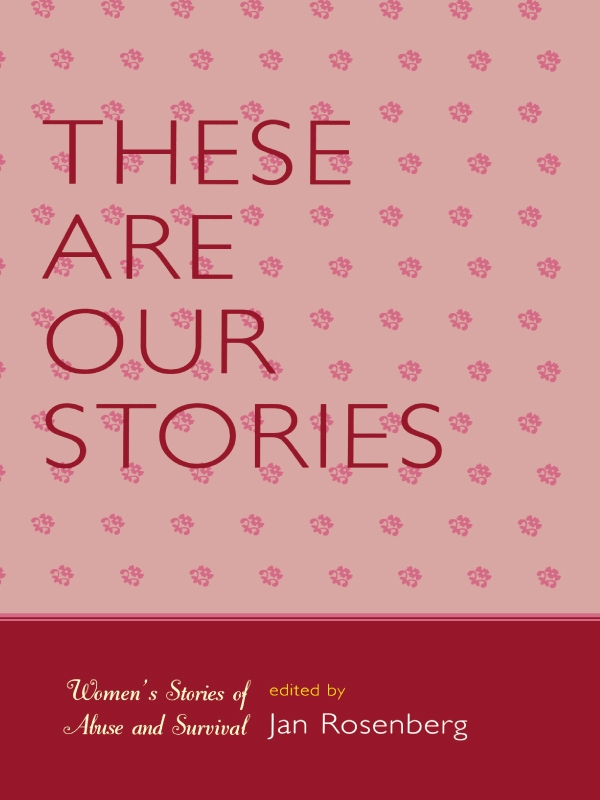Jan Rosenberg is an independent folklorist, currently based in Tallahassee, Florida. She is founder and President of Heritage Education Resources, Inc, a non-profit organization devoted to providing and developing resource materials and services for the exploration of heritage and cultural diversity.
RESOURCES
Ammerman, Robert T. and Michel Hersen (eds.) Case Studies in Family Violence . (2nd ed.) New York: Kluwer Academic/Plenum Publishers, 2000.
Florida Coalition Against Domestic Violence. Domestic Violence in Rural America: A Resource Guide for Service Providers . Tallahassee, FL: FCADV, 1998.
_____________. Domestic Violence in Rural Underserved Areas: A Guide to Working within Diverse Communities. Tallahassee, FL: FCADV, 1999.
Florida Department of Children and Families. Domestic Violence Digest. Tallahassee, FL: Florida Department of Children and Families, 2002
Goetting, Ann. Getting Out: Life Stories of Women Who Left Abusive Men . New York: Columbia University, 1999.
Gondolf, Edward W.. Men Against Women: What Every Woman Should Know About Violent Men . Blue Ridge Summit, PA: TAB Books, 1989.
Henderson, Helene. Domestic Violence and Child Abuse Sourcebook. Detroit: Omnigraphics, 2000.
Hoyle, Carolyn H. Negotiating Domestic Violence: Police, Criminal Justice, and Victims . New York: Oxford University Press, 1998.
Jones, Ann. Next Time Shell Be Dead . Boston: Beacon Press, 1994.
Klein, Ethel, et al. Ending Domestic Violence: Changing Public PerceptionslHalting the Epidemic . Thousand Oaks, CA: Sage Publications, 1997
Knudsen, Dean D. and JoAnn L. Miller. Abused and Battered: Social and Legal Responses to Family Violence. New York: A. deGruyter, 1991.
Lawless, Elaine J. Women Escaping Violence: Empowerment Through Narrative . Columbia, MO: University of Missouri Press, 2001.
Martin, Del. Battered Wives. Volcano, CA: Volcano Press, 1976, 1981.
Nelson, Noelle. Dangerous Relationships: How to Stop Domestic Violence Before It Stops You . New York: Perseus Publishing, 1997.
Profitt, Norma Jean. Women Survivors, Psychological Trauma, and the Politics of Resistance . New York: Haworth Press, 2000.
Raphael, Jody. Saving Bernice: Battered Women, Welfare, and Poverty . Boston: Northeastern University Press, 2000.
Roberts, Albert R. Handbook of Domestic Violence Intervention Strategies and Policies, Programs, and Legal Remedies. New York: Oxford University Press, 2002.
Ross, Susan Deller, et al. The Rights of Women: The Basic ACLU Guide to Womens Rights . Carbondale: Southern Illinois University Press, 1983.
Russell, Diana E.H.. The Secret Trauma: Incest in the Lives of Girls and Women. New York: Basic Books, 1986.
Schechter, Susan. Women and Violence: The Visions and Struggles of the Battered Womens Movement. Cambridge, MA : South End Press, 1982.
Shepard, M, and Pence, E. Coordinating Community Responses to Domestic Violence . Thousand Oaks, CA: Sage Publications, 1999.
Sipe, Beth. I Am Not Your Victim . Thousand Oaks, CA: Sage Publications, 1996.
Stahl, Sandra K.D. The Oral Personal Narrative in Its Generic Context. Fabula 18, 1977 pp. 18-39
_________. The Personal Narrative as Folklore. Journal of the Folklore Institute 14, 1977 pp. 9-30.
Tiff, Larry L. Battering of Women: The Failure of Intervention and the Case for Prevention . Boulder, CO: Westview Press, 1993.
Walker, Lenore. The Battered Woman Syndrome. (2nd ed.) New York: Springer Publishing Co., 2000.
Yllo, K. and M. Bograd (eds.). Feminist Perspectives on Wife Abuse . Newbury Park, CA: Sage Publications.
Pam Taylor
For all of her 25 years, Pam Taylor has experienced a lot. She grew up in Washington County, Florida where at the age of three or four she was placed in foster care. She lived in foster care and group homes until the age of 17. She has experienced street life, she has experienced the ravages of domestic violence. Today Pam lives with her mother in Chipley where she is active in the church.
PT: Pam Taylor
JR: Jan Rosenberg
JL: Janet Lupher
PT: I was born and raised in Chipley, I had a pretty bad childhood. I was taken away from my real mom, I was thrown in different foster homes, and included being abused.
JR: Uh huhm. Tell me a little bit more about that.
PT: Well (laughs) it was. I was in different places like foster homes that who strangers, that who abused me. Then my mom the way she treated me a little bit. You know, I always felt like I was left out. Felt like I was a nothing. And you know. And when I got grown enough, I stayed around Chipley till I got around
10. And then I left Chipley and they threw me in the foster home in Panama City. It was a good foster home. I stayed there till I was about 12, and I went to a place called Heidel House.
JR: Heidel House?
PT: Yeah, Heidel House. Like a Christian home.
JR: Heidel House
PT: Heidel House, something like that
JR: Can you spell it?
PT: (laughs) No.
JR: Heidel House
PT: Heidel House in Panama City, Used to be on 77.
JR: OK
PT: It was like a Christian center, you know, open home, people come to live there. And I left from there and they send me to Miami. And I went to a hell hole in Miami. They call that place Martenary.
JR: Martenary
PT: Yes, like group homes.
JR: Uh huh
PT: And they put me in a lock-up. The first time I got there thats what they do, you know where youve run so much. They call you a runaway. You know you run too much, get away.
So I was thrown in Martenary, and I stayed in Martenary about five years. Till I turned 17.
JR: This is all pretty recent for you.
PT: Yeah, it was pretty bad, bad experience, where you in a place and see bad things, kids that been there longer than I ever have. When you see them take things like bed rails and sticking it up in their arms, stabs. Take their arms and bend their arms back and their legs, put them back. You know, it was very bad experience. A staff she ... choked me to death. Almost killed me. But it didnt happen. Thank God for that.
So I still felt real bad. I felt like I was still being abused everywhere I went. I felt rejected. I always felt like I was left out. I felt like, you know, my parents didnt care about me, just didnt give a darn about me, thats how I felt. And living a rough life, and then coming back here and I end up taking a man whos way older than I was. You know he was like a daddy to me. And I fell in love with him and I thought he was the best in the world, thought he was good, thought he was somebody special, and all that. You know, he treated me right at first beginning, he gave me this what I wanted and gave me money, you know, and then later on it turned out to be real bad. He got on drugs, he wanted me to mess around with other men. As I did, just to please him. But to find out I was messing my own life up. By doing something I shouldnt do. By putting myself out there like - - I call myself a whore at the time I was doing it, you know, like inviting somebody into your house. Cause your man want somebody to come there. He want to smoke dope, he want to use you to get the dope, and you just volunteer and you just do whatever he wants you to do.
And later on I woke up from that. You know I never know if you keep on doing this, you know, somebodys going to come by and theyre going to take me from you. I just never know that. And when I told him that he slowed down from what hed been doing.
But the hitting and everything begin when I was staying in Pitcher Hill on Old Bonifay Road. Apartments up there.... 1998 I think.

